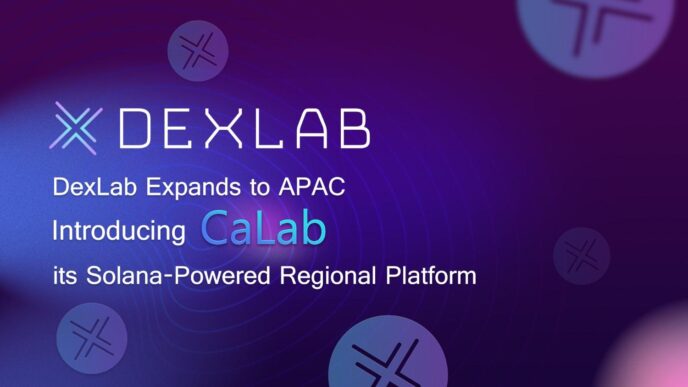Introduction: The Importance of Integration in Modern Retail
In today’s competitive retail landscape, efficiency and agility are paramount for success. The ability to manage both physical and online stores seamlessly can make or break a business. This is where integration plays a crucial role. For retailers using the RMH (Retail Management Hero) POS system, integrating it with an eCommerce platform like BigCommerce is a smart move that can unlock new growth potential and improve overall operations. In this blog, we’ll explore how RMH and BigCommerce integration can maximize retail potential and streamline operations for modern retailers.
An Overview of RMH (Retail Management Hero) POS System
RMH is a powerful and flexible point-of-sale (POS) system designed for small to mid-sized retailers. Known for its user-friendly interface, RMH simplifies inventory management, customer tracking, and sales reporting. It offers a robust set of features to manage in-store operations, but when extended to the online world, its capabilities are even more powerful. This is where integration with platforms like BigCommerce becomes invaluable, helping retailers maintain consistent data and customer experiences across all sales channels.
Why Integrating RMH with BigCommerce is a Smart Move
BigCommerce is a leading eCommerce platform that empowers businesses to create online stores and reach customers worldwide. By integrating RMH with BigCommerce, retailers gain the ability to manage inventory, sales, and customer data seamlessly between their physical and online stores. This not only improves operational efficiency but also ensures a unified shopping experience for customers. With the ability to update products and prices in near real-time, businesses can stay competitive and responsive to market trends.
Inventory Accuracy: How RMH BigCommerce Integration Helps Avoid Stockouts
One of the most significant benefits of integrating RMH with BigCommerce is improved inventory accuracy. Keeping track of stock levels across multiple sales channels can be a daunting task. RMH BigCommerce integration solves this problem by synchronizing inventory data in near real-time. This means when a product is sold in-store, the inventory count is updated on BigCommerce automatically, and vice versa. This reduces the risk of stockouts or overselling, ensuring that customers can always find what they’re looking for and that retailers can avoid lost sales due to stock discrepancies.
Streamlining Sales Channels with RMH BigCommerce Integration
Managing multiple sales channels can be time-consuming and prone to error without proper integration. With RMH BigCommerce integration, retailers can streamline their sales channels by centralizing product, customer, and order information in one system. This leads to better decision-making, reduced manual data entry, and quicker responses to customer needs. The ability to see sales performance and customer behavior across all channels from one dashboard gives retailers the insights they need to optimize operations and grow their business.
Real-world Examples: Success Stories of RMH Integration
Numerous retailers have seen tremendous success by integrating RMH with BigCommerce. For instance, a specialty clothing store based in California saw a 30% increase in online sales after integrating their RMH POS with BigCommerce. With synchronized inventory and streamlined order processing, they were able to fulfill orders faster and avoid customer complaints about stockouts. Another example is a home goods store in Texas, which used RMH BigCommerce integration to reduce their manual order entry time by 50%, freeing up resources for customer service and marketing efforts. These success stories demonstrate the tangible benefits that RMH and BigCommerce integration can bring to retailers.
Key Considerations for a Smooth RMH BigCommerce Integration
While the benefits of integrating RMH with BigCommerce are clear, there are some key considerations for ensuring a smooth integration process. Retailers should first ensure that their RMH system is up to date and that all data is accurate before starting the integration. Additionally, it’s crucial to map out how inventory, pricing, and customer data will flow between the systems. Retailers should also work with an experienced integration partner to avoid common pitfalls and ensure that all features of the integration are working properly from the start.
Why Octopus Bridge is Your Go-To Solution for RMH and BigCommerce Integration
Octopus Bridge, developed by 24SevenCommerce, is the ideal solution for integrating RMH with BigCommerce. It provides a near real-time connection between the two platforms, ensuring that inventory, orders, and customer data are always up to date. With Octopus Bridge, there’s no need for manual data entry or complex workflows, allowing retailers to focus on what matters most – growing their business. Its seamless integration minimizes errors, enhances productivity, and provides the scalability needed to manage both physical and online stores with ease.
Conclusion: Elevating Your Retail Business with RMH Integration
In today’s fast-paced retail environment, integration is no longer a luxury – it’s a necessity. Integrating RMH with BigCommerce allows retailers to enhance inventory accuracy, streamline sales channels, and provide a superior customer experience. By leveraging the power of Octopus Bridge for near real-time integration, retailers can unlock their full potential, maximize sales, and stay ahead of the competition. If you’re ready to elevate your retail business, RMH and BigCommerce integration is the way to go.











